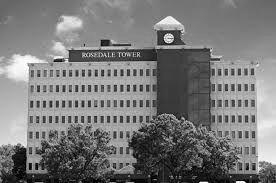The iconic American author Henry David Thoreau once said, “Never look back unless you are planning to go that way.” This is true in many walks of life, but it feels especially pertinent to recovery life. Forward momentum is crucial in recovery, and that forward momentum can be bolstered by creating a specific roadmap for that recovery journey. Case management is one of the ways to accomplish this.
Recovery is not one-size-fits-all. That is why we here at Clere Consulting believe it is critical to treat each of our clients on an individualized basis. This individualized comprehensive planning begins with case management and often concludes with a loved one in successful recovery.
What Exactly Is Case Management in Recovery?
The truth is that successful case management in recovery is not that much different than case management in business or other avenues of life. The difference is that the stakes in recovery can be extremely high.
At Clere Consulting, our case management specialists can work with clinicians and their clients, family members struggling to help a loved one, or family advisors already in the process of guiding recovery. The first step is assessing the entire situation and its current status.
From assessment, our specialist can create a positive roadmap that includes connecting with interventionists, treatment facilities, and recovery coaches or companions. When proper planning takes place, it can help avoid common missteps in recovery, as well as help manage unforeseen roadblocks.
How Case Management and Planning Can Avoid Pitfalls
Just as everyone’s journey in active addiction is different, their recovery plan should be as well. Active addiction is a formidable foe, as its primary goal is to avoid any interruption to getting what it needs at all costs. Remember that active addiction is what we are really combatting because addiction has control over the person of concern that is struggling with substance use disorder (SUD).
The ultimate goal in helping a loved one is to get them on the healthy path of long-term recovery. A case manager can help them get there by getting the help they need to separate from their addiction. This includes creating a window to get them past their denial and get them to accept the help they desperately need.
This window may include an intervention. It may also involve a detox facility and incorporate long-term inpatient or outpatient treatment. All of these resources can be set up by a case manager as needed.
Recovery: Before, During, and After
As much as we may hope, recovery is rarely a quick and simple process. It takes a lot of planning, hard work, and often significant amounts of time. However, it is also important to remember that recovery is not “cookie-cutter.” When something unforeseen happens, a case manager can ensure that an “audible” can be called to continue toward that ultimate goal of recovery.
Also, case management does not end after treatment. A managed plan also includes the phases after recovery. This may include getting the individual involved in the local recovery community, employing a recovery coach, and getting therapy for the entire family.
It is important to think of recovery as a process rather than an event. Many 12-Step programs discuss the “three A’s.” These are awareness, acceptance, and action. These three measures are a great way to understand recovery in an overarching way. Let’s look at it from a case management perspective.
Awareness
First, the family (or friends or employer) must admit and acknowledge that there is a problem. This is the “awareness” step and when a case manager can come in and help. They can take the family through the process of getting their loved one the help they need.
Acceptance
Second, acceptance can then take place. This is a great place to be because it means that there is now a willingness to get the loved one the help they need. In setting up a plan, a little solace can be had that their loved one will soon get help.
Action
Then comes the most important step, the action step. The beauty of this step with a case manager is that everything and everyone have been set in place to ensure that the recovery process runs smoothly.
The Clere Consulting Difference
One of the unique aspects of Clere Consulting is our connection to all the various entities and facilities that will best help your loved one recover. These connections will give your family multiple options in choosing the best path for recovery.
Clere Consulting also has specialists on staff that can help your family succeed. These include case managers, of course. However, we also have recovery coaches, family business advisors, and recovery companions. All of these resources can help to ensure that your family never looks back. Rather they continue to look forward to the bright future ahead.
Recovery is never a “one size fits all” process. That is why it can be crucial to employ a case management specialist to help your family in their recovery journey. Case management can help keep the entire family on track toward their recovery goals. Case management can set the schedule and project goals to ensure the greatest chances for a healthy long-term recovery for the entire family. Here at Clere Consulting, we have case management specialists that can set your family up for recovery success. We understand that watching a family member struggle with substance use disorder can be one of the hardest things a family will go through. Call Clere Consulting today at (866) 384-8847 for more information.



